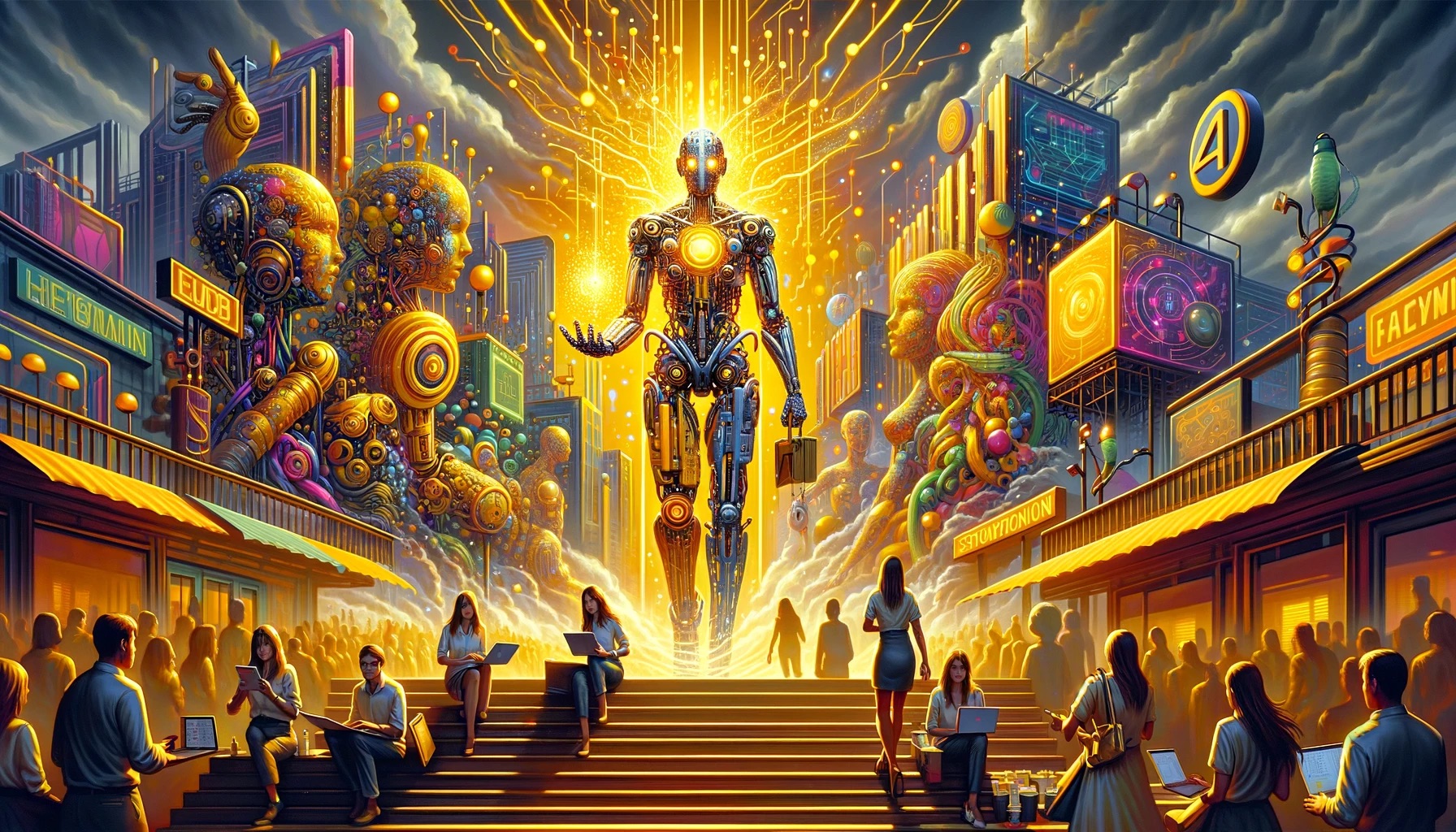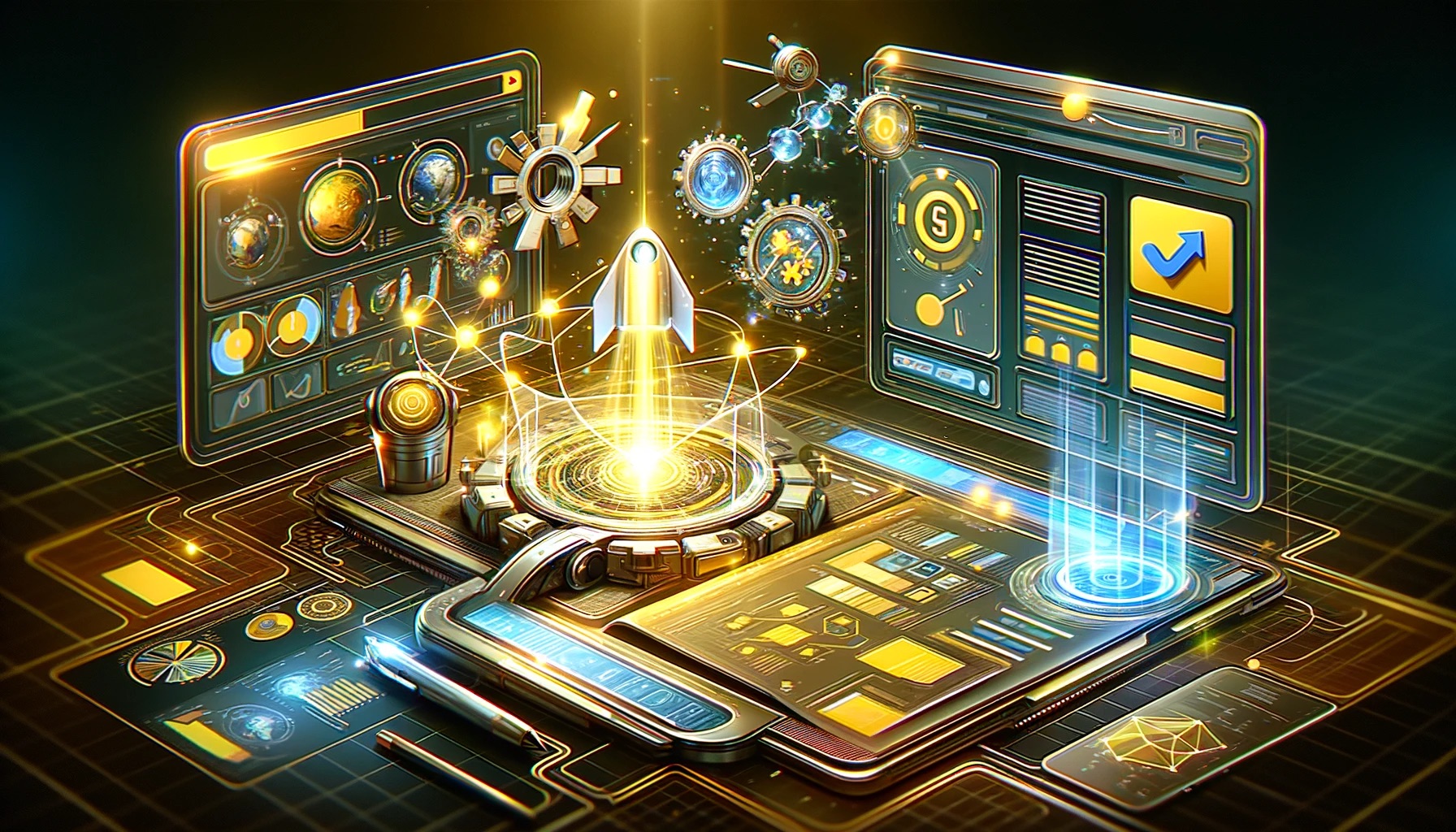Welcome to a transformative era in digital advertising, where Google’s strategic shift towards automation and AI is reshaping the way we approach digital marketing. In this insightful article, we’ll delve into the nuances of Google’s recent restructuring in its ad sales unit and what it means for the future of digital advertising.
Google’s Strategic Shift: Embracing AI and Automation in Ad Sales
Recently, Google announced a significant restructuring of its 30,000-person ad sales unit, emphasising a greater reliance on automation and machine learning. This change is a testament to Google’s commitment to enhancing its advertising services, potentially offering a more efficient and targeted experience for digital marketers. While not directly implying layoffs, this move marks a strategic turn towards AI-driven ad operations, impacting platforms like Google Search and YouTube.

Automation in Google Ads: A New Dawn for Digital Marketers
The integration of machine learning and automation in Google Ads heralds a new era for digital marketers. As automated processes become more prevalent, we can expect a more streamlined ad buying experience. This shift could be particularly beneficial for small businesses, providing access to sophisticated ad targeting tools previously out of reach.
Understanding the Impact: Beyond Workforce Reduction
It’s crucial to understand that Google’s focus on automation and AI in ad sales is part of a broader strategy, separate from the workforce reduction announced earlier in January 2023. The latter was a response to global economic challenges and strategic realignments within Alphabet, impacting around 12,000 employees. In contrast, the recent restructuring aims to enhance efficiency and effectiveness in advertising strategies, without directly leading to workforce reductions.

The Role of AI in Revolutionising Ad Strategies
With Google’s pivot to AI and automation, the role of artificial intelligence in crafting advertising strategies becomes more pronounced. AI’s ability to analyse vast amounts of data and identify patterns enables more effective and targeted ad campaigns. This level of sophistication in ad targeting promises to increase campaign ROI and provide valuable insights into consumer behaviour.
Adapting to an Automated Advertising Landscape
For digital marketers, adapting to this automated landscape is crucial. It involves understanding the nuances of AI-driven platforms and leveraging these tools for more refined marketing strategies. While this may initially require a period of adjustment and learning, the long-term benefits of automation in ad targeting and placement are significant.
Opportunities and Challenges in an AI-Driven Environment
While the integration of AI and automation presents numerous opportunities, it also brings challenges. One of the key challenges is ensuring that the AI systems align with ethical advertising practices and privacy standards. As automation becomes more prevalent, it’s essential to maintain transparency and user consent, especially in data usage and ad targeting.
Preparing for the Future: Embracing Change in Digital Marketing
As the digital marketing landscape continues to evolve, embracing these changes is essential for staying ahead. Digital marketers must be agile, ready to adopt new technologies, and keen to leverage the potential of AI and automation in their strategies. This readiness for change will be key to thriving in the rapidly evolving world of digital advertising.

Conclusion: Navigating the New Era of Google Ads with AI and Automation
Google’s restructuring towards automation and AI in ad sales marks a significant shift in the digital marketing landscape. This move signifies a future where AI-driven strategies will dominate, offering efficiencies and new capabilities in ad targeting and campaign management. By staying informed and adaptable, digital marketers can leverage these changes to create more impactful and efficient advertising campaigns.
As we embrace this new era, the focus shifts from traditional approaches to innovative, data-driven strategies that harness the power of AI and automation. The future of digital marketing is here, and it’s brimming with possibilities for those ready to embrace the change.
Your Insights and Experiences
We are keen to hear about your experiences and thoughts on this significant shift towards automation and AI in Google Ads. How are you preparing for these changes? What strategies do you believe will be most effective in this new landscape? Share your insights and join the conversation below. Your contributions are invaluable as we navigate this exciting era of digital marketing together.
Looking forward to our next discussion on the evolving trends in digital marketing. Stay tuned for more insights and best practices in this dynamic field. See you in the next post!

Leave a Reply